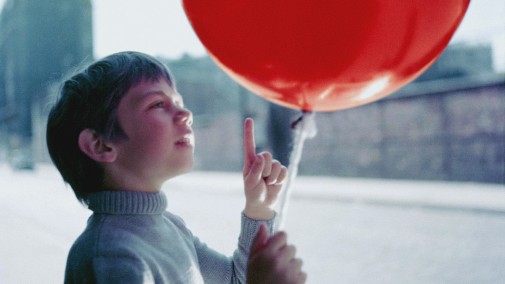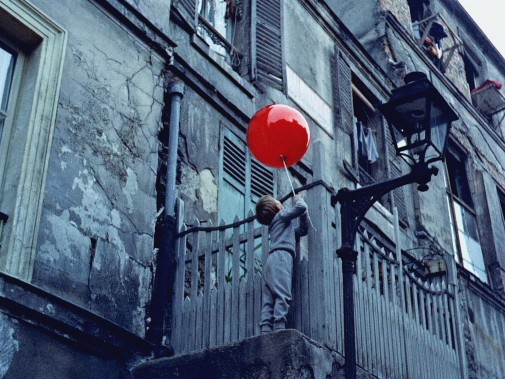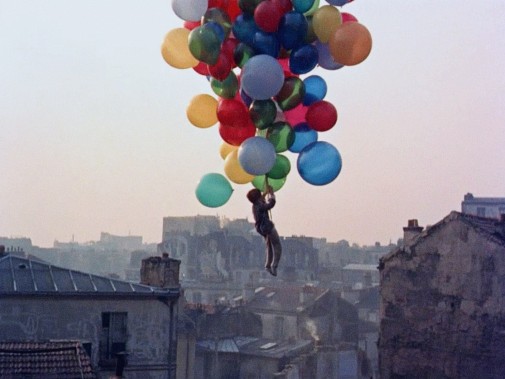
Last time we explored the history of non-English speaking films at the Academy Awards, we looked at the success of Japanese cinema in the Best Costume Design category. In 1956, two years after the historical victory of Teinosuke Kinugasa's Gate of Hell, the Academy finally inaugurated the Best Foreign Language Oscar as a competitive category. Federico Fellini's La Strada was the first winner and, like Gate of Hell, it also scored a nomination in another category, Best Original Screenplay. This time around, though, the foreign film champion lost that additional statuette. However, it didn't lose to a Hollywood production or even an English-language one. Instead, that year's prize for Best Original Screenplay went to one of the weirdest Oscar winners of all time.
We're talking about a nearly dialogue-free French short film about a magical balloon directed and written by the creator of the Risk board game…

Albert Lamorisse's The Red Balloon is 34 minutes' worth of depurated childish wonderment. It tells the story of a lonesome boy living in a dilapidated neighborhood of post-war Paris. One day, he finds a beautiful red balloon and starts taking it with him everywhere. In no time at all, the youngster realizes that the balloon is somehow sentient and behaves like a loyal pet, or perhaps a devoted friend. The little boy is delighted with this newfound companionship but outside forces threaten his joy, be it insensitive adults or the vicious bullying of other kids. What starts as a dreamy urban fairytale becomes a mournful tragedy, ending in a note of bubbly airborne whimsy.
The narrative is a modest one, sparse with words, preferring the charm of simplicity to the complex lunacy that could sprout from this fantastical premise. That doesn't mean the picture is without substance. Palimpsests of degradation paint the background of every scene, suggesting the wreckage of the war even if its wounds have already scarred over. It's a strange world for a kid, one full of incomprehensible adult things and metropolitan mysteries. The intromission of an impossible phenomenon into this environment makes reality easier to understand and endure for the little one. Such matters could be paradoxical but Lamorisse's magic realism makes it all cohere seamlessly.
A bold splash of red over a mirthless mural of blueish greys, an infantile toy, a symbol of love, an antidote for isolation, a ray of joy bursting through a cloudy sky - the balloon is all those things and more, a powerful talisman that anchors this trifle of a short film in genuine emotion. That makes it easy to consider the Academy's decision an inspired one, even if it is highly unusual. The other nominees are formidable, we must admit, with La Strada's carnivalesque melodrama and The Ladykiller's perverse black comedy being of particular greatness. In the end, however, The Red Balloon's unpretentious tale for children and every adult's inner child feels timeless, forever relevant, forever perfect.
Throughout Oscar history, no other short film has ever been able to score a nod outside its specific categories. Perusing the voting regulations for the 29th Academy Awards, it becomes evident that The Red Balloon might have been slightly too long to be eligible as a Short Subject. Anything longer than 3,000 feet of 35mm film (around 33 minutes of footage) would have to be considered a feature under those rules. Since it had won the Palme d'Or for Short Films at Cannes and received critical acclaim once it opened in American cinemas, it's easy to see why its distributors pushed The Red Balloon for Oscar consideration in any way they could. Their efforts proved wise and they ended up making history in the process.

The Red Balloon is currently available to stream from the Criterion Channel. If you have seen it, do you think it deserved the Oscar or are you team Fellini instead?